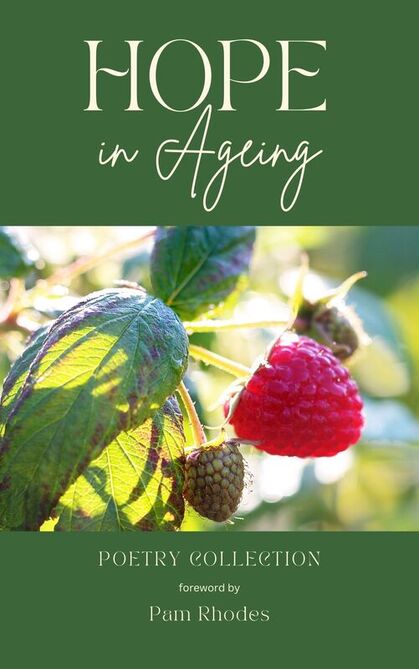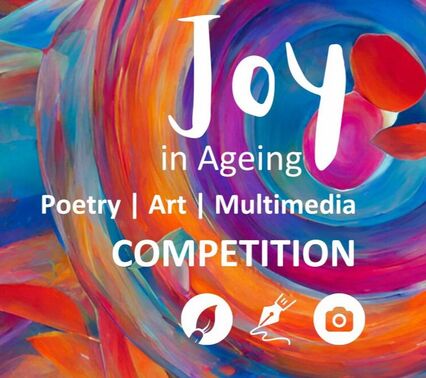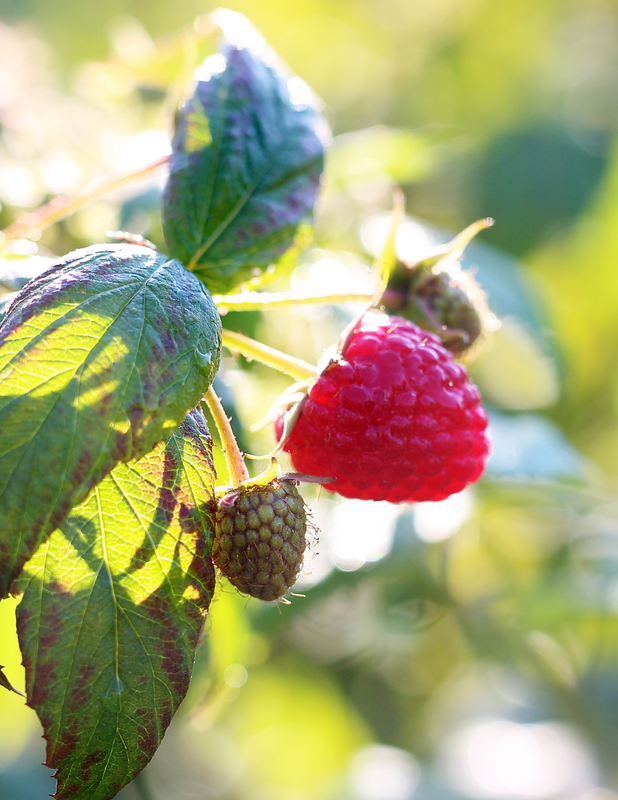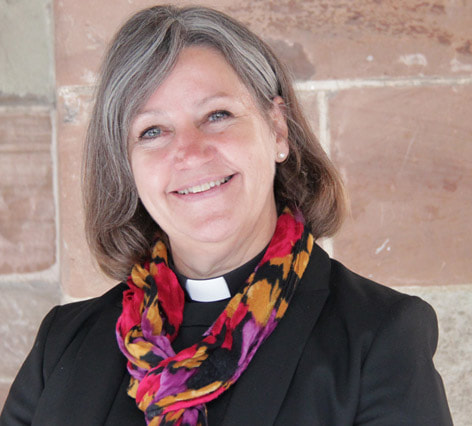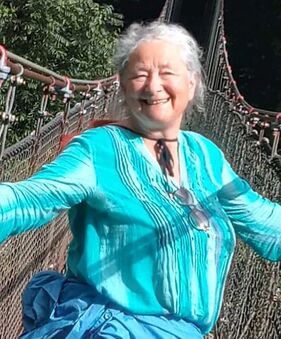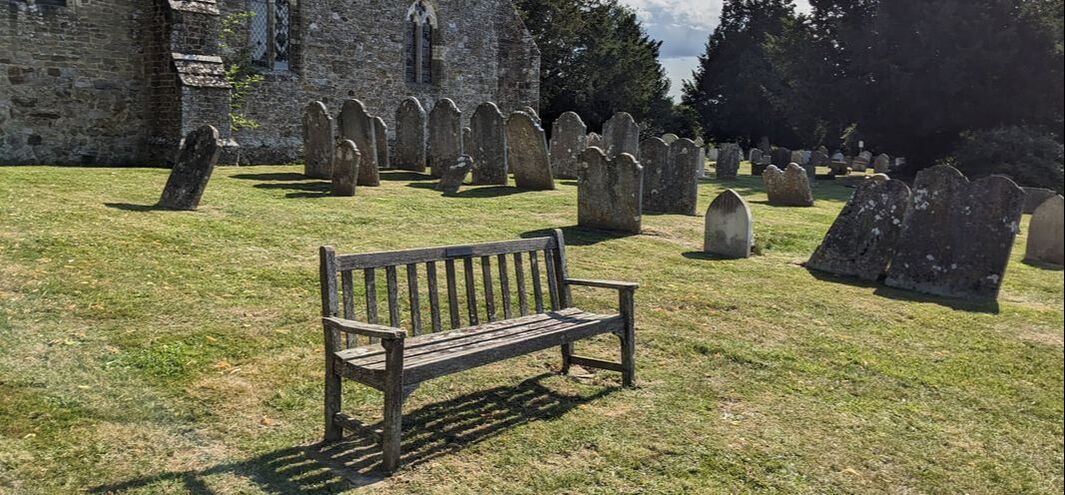AVAILABLE NOW!
|
Hope in Ageing Poetry Collection features the 58 shortlisted poems from the 2023 Hope in Ageing poetry competition. Thank you so much to everyone that submitted entries to the competition. Pam Rhodes wrote the foreword and describes the collection as: "A sublime tapestry of insights, feelings and experiences through which hope is solidly threaded, weaving together life, limb, laughter and love." Pam Rhodes |
Unleash Your CreativityIn our 2024 poetry, art and multimedia competition on the theme of Joy in Ageing
|
What a joy it has been to read the 200+ poems that were submitted for the Hope in Ageing Poetry competition. The poems showed us that hope is drawn from so many sources, including faith, nature and family.
We are delighted to share below the winning poems with you, as well as the judges' thoughts and information about the poets. You can read all the winning and shortlisted poems in our anthology, available to order above.
If you would like to be kept in the loop with poetry updates, including when we launch next year's poetry competition, please complete the form below.
We are delighted to share below the winning poems with you, as well as the judges' thoughts and information about the poets. You can read all the winning and shortlisted poems in our anthology, available to order above.
If you would like to be kept in the loop with poetry updates, including when we launch next year's poetry competition, please complete the form below.
WINNING POEMS
1st Place: Raspberries in October by Jeremy Winter
2nd Place: Where've I left the car by Kim Topham
3rd Place: What do you mean "Hope in Ageing"? by Elizabeth Ali
JUDGE'S CHOICE - HIGHLY COMMENDED
The judges each chose a poem that deserved a special commendation alongside the winning poems:
Hope in Ageing Poems on Hearts and Hymns with Pam Rhodes
If you missed the Premier Christian radio show where Pam Rhodes featured the winning poems,
you can listen to it by clicking below.
you can listen to it by clicking below.
Raspberries in October
|
As summer turns to autumn And the leaves begin to fall Nature seems to tire And the birds begin to call Summer warmth recedes The nights are getting colder Winter won’t be far behind Squirrels become bolder We gather in the harvest Pick grapes from the vine Hedgerows gleam with berries And rosy apples shine Summer fruit, which seems so good Has gone, we think in haste But raspberries in October Still give surprising taste Life also has its seasons In youth we reach our prime But later years bring something new A more reflective time Our memories and experience Have much to teach and show As energy begins to ebb Our pace begins to slow Mistakes we’ve made have taught us well Our gifts and talents found Our strengths we’ve tried to put to use Our weaknesses renowned As time slips by we wonder Are the skills we have still needed? When all is new and older voices Often go unheeded But don’t give up, at least not yet We still have much to do We can’t be sure what’s coming next Adventures to pursue As new life takes the place of old Change will come and then Those raspberries in October Will make us think again |
About the Poet: Jeremy WinterJeremy is 64, originally from Shropshire, but has lived near Preston in Lancashire for most of his adult life. He has worked as a social worker and manager in the field of Adults with Learning Disabilities for over 30 years and is also a qualified Counsellor. He is married with 3 grown up children and one grandchild, with another expected soon! He enjoys cycling, hill-walking, photography and gardening. He has been writing poetry for just over 10 years, which he finds is very helpful way to express his thoughts and feelings about significant life events. The title of the poem, Raspberries in October, came to him after being surprised to find some very late ripening raspberries in the garden. This made him reflect about how older people still have much to offer, which eventually led to this poem being written.
|
Judges' Comments
Dave Bilbrough writes:
This evocative poem grabbed my attention right from the start. The vivid description of summer, turning eventually to autumn, had me questioning, at first, its relevance to the theme. Then, beautifully, it opened out as a parallel of a life well lived through seasons and years. I loved it - it is a worthy winner.
Amanda Root writes:
This is a beautiful poem. The poet leads us through the changes in the seasons as similar to the seasons of older age. Our later years bring something new, a more reflective time, a time when the pace of life slows and we wonder “are the skills we have still needed?” There is great wisdom and a surety running through the poem. The poet encourages us not to give up, and we are stirred into a real sense of hope. The return to the image of the raspberries in the final stanza, both breaks our heart and inspires us to go forward.
Pam Rhodes writes:
I love this poem because comparing the span of our lives to the rhythm and wonder of the seasons is such a clever way to illustrate the strengths, beauty, battle and wisdom we share with all of God’s creation. And I remember so well the treat of finding a ripe juicy raspberry in the garden, with its bright red promise of delicious flavour – and to recognise that same sense of delight now as we grow older is something to treasure as the years go by.
This evocative poem grabbed my attention right from the start. The vivid description of summer, turning eventually to autumn, had me questioning, at first, its relevance to the theme. Then, beautifully, it opened out as a parallel of a life well lived through seasons and years. I loved it - it is a worthy winner.
Amanda Root writes:
This is a beautiful poem. The poet leads us through the changes in the seasons as similar to the seasons of older age. Our later years bring something new, a more reflective time, a time when the pace of life slows and we wonder “are the skills we have still needed?” There is great wisdom and a surety running through the poem. The poet encourages us not to give up, and we are stirred into a real sense of hope. The return to the image of the raspberries in the final stanza, both breaks our heart and inspires us to go forward.
Pam Rhodes writes:
I love this poem because comparing the span of our lives to the rhythm and wonder of the seasons is such a clever way to illustrate the strengths, beauty, battle and wisdom we share with all of God’s creation. And I remember so well the treat of finding a ripe juicy raspberry in the garden, with its bright red promise of delicious flavour – and to recognise that same sense of delight now as we grow older is something to treasure as the years go by.
Where've I left the car?
|
Well what a state to be in, I can’t see very far I’ve lost the will to learn much tech, and where’ve I left the car? I don’t know how to Twitter and TikTok ain’t much use My hearing aid fell out again and my teeth are working loose. Can’t find a pen, who took my phone, I know I left it here When on a trip, my only thought’s, I hope the toilet's near! Can’t get the jam jar open, the top shelf's far too high And when I find a parking space, I give a thankful sigh. But frankly speaking, it’s not too bad, this thing of growing old There’s lots of time for holidays, on beaches coloured gold Or lying in or meeting friends or wearing hats, so bold Or having time to clean the tiles, of all that nasty mould. With time to spend with children and children’s children, more The laughs we have by building tents and lava on the floor We go on walks and meet for drinks and dance the whole night through It’s amazing just what one can do, with an orthopaedic shoe. Time is what we’re given, whether short or whether long It’s what we try to make of it, that makes it right or wrong I know that when I’m finished, my Lord will take me far My hope is in Christ Jesus, but where’ve I left the car? |
About the Poet:
|
Judges' Comments:
Pam Rhodes writes:
Was the Revd. Kim Topham watching when I did LOSE the car in Asda’s car park just the other week? Every line of this poem echoes with me – the aches and pains, and not being able to get on with technology without an eight-year-old by my side! We all loved this poem with its delightful mix of humour and unfortunate fact – and especially for the writer’s own joy in living that shines through every line.
Dave Bilbrough writes:
I loved the shape of this poem. Early on we get the question then it’s repeated again at the end. Throughout there are details of everyday predicaments we can all identify with. This lighthearted but thoughtful romp made me laugh out loud and savour the humorous side-effects of growing older.
Amanda Root writes:
A gloriously funny poem tackling the many challenges of ageing in a light-hearted way, but managing to keep the message profound. There is a real sense of energy and resilience that shines out from this poem.
Forgetfulness, physical limitations and age related anxieties are paralleled with the consolations to be found in holidays, time with grandchildren and friends, dancing, and ultimately a future with Christ which serves as an anchor to the whole piece. The final message is dealt in delightful juxtaposition to the lost car so we do not dwell, we feel cheered on and rallied by our mutual experience.
Was the Revd. Kim Topham watching when I did LOSE the car in Asda’s car park just the other week? Every line of this poem echoes with me – the aches and pains, and not being able to get on with technology without an eight-year-old by my side! We all loved this poem with its delightful mix of humour and unfortunate fact – and especially for the writer’s own joy in living that shines through every line.
Dave Bilbrough writes:
I loved the shape of this poem. Early on we get the question then it’s repeated again at the end. Throughout there are details of everyday predicaments we can all identify with. This lighthearted but thoughtful romp made me laugh out loud and savour the humorous side-effects of growing older.
Amanda Root writes:
A gloriously funny poem tackling the many challenges of ageing in a light-hearted way, but managing to keep the message profound. There is a real sense of energy and resilience that shines out from this poem.
Forgetfulness, physical limitations and age related anxieties are paralleled with the consolations to be found in holidays, time with grandchildren and friends, dancing, and ultimately a future with Christ which serves as an anchor to the whole piece. The final message is dealt in delightful juxtaposition to the lost car so we do not dwell, we feel cheered on and rallied by our mutual experience.
What do you mean, "Hope in Ageing"?
|
Why do you see only lines and wrinkles, Grey thinning hair and sagging muscles? Think not the outer reflects the inner, Look into the eyes, watch out for the smile, Listen for laughter and feel that warm touch And know that this wizened and hobbling old crone Can still beat you at chess, make new things from old, Turn dust into verdure and house into home. Take care how you denigrate stories we tell, Look under the words and take note of the theme, A timely parable may just save your skin, Though not one of us knows if, or when, that might be. Still, remember the rhythm of life carries on As long as the heart beats, the tears flow, The love swells, the Spirit within continues to grow, No stifling demon can rule in my soul. The blossoms of spring and the colours of fall, The kind warmth of summer and fresh bite of frost Continue to stir, in us all, a response, Come what may, come what will, The life force gives hope still Whatever fate chooses to throw in our way, We lived once, we yet live, responsible, bold, Ideas still burgeon, no matter how old. |
About the Poet: Elizabeth Ali
I was born in Yorkshire and always loved song, poetry and stories. At age 9 I first read ‘Jane Eyre’, well, we were living near Haworth at the time. At University in Guildford I ran a writing group called Quill (Quite Unusual Institute of Literary Loons).
I became a midwife and loved my job. What a privilege it was to help lovely women to bring new life into the world. I ended up with two babies of my own and two in the next generation. I did continue ‘scribbling’, including an attempt at novel writing, which was far too demanding whilst doing a job full-time and running a home.
Since retiring, I meet regularly with a small group of writers and it was through this group that I learnt of the Embracing Age competition. The poem was, initially, a rant on the idea that there could be any need for ‘hope’ in my ageing process. Once I had read up on the charity, I readjusted and managed to suppress my critical attitude to the theme, but decided the title of my poem should still reflect a little of my initial reaction. I gave up my career regretfully, but I knew I no longer had the stamina it required. However, I found my energy levels returned as I became the one managing how and when I did things. Result? A determination to do as much as I can as long as I can.
I became a midwife and loved my job. What a privilege it was to help lovely women to bring new life into the world. I ended up with two babies of my own and two in the next generation. I did continue ‘scribbling’, including an attempt at novel writing, which was far too demanding whilst doing a job full-time and running a home.
Since retiring, I meet regularly with a small group of writers and it was through this group that I learnt of the Embracing Age competition. The poem was, initially, a rant on the idea that there could be any need for ‘hope’ in my ageing process. Once I had read up on the charity, I readjusted and managed to suppress my critical attitude to the theme, but decided the title of my poem should still reflect a little of my initial reaction. I gave up my career regretfully, but I knew I no longer had the stamina it required. However, I found my energy levels returned as I became the one managing how and when I did things. Result? A determination to do as much as I can as long as I can.
Judges' comments:
Amanda Root writes:
This is a wonderfully passionate poem and offers a challenge to the reader to look beyond what we see, to listen, to consider the skills and abilities of older people, the inner rather than the outer. I loved the energy behind the rhythm, drawing us beyond the obvious signs of ageing, the easy judgements, to the affirmation that ‘As long as the heart beats..love swells, the spirit continues to grow.’ The sure declaration ‘No stifling demon can rule in my soul’ rallies and lifts us into the stirring positivity of the final lines; ’Come what may, come what will…’ we have a response to the beauty around us, ideas still burgeon and the life force gives hope, no matter what our age.
Dave Bilbrough writes:
For me, a good poem needs to be felt as well as heard. Using a cascade of words and turns of phrase Elizabeth offers a fierce, bold defiance against the typecasting so many hold as they look at those in later life. The wisdom and resilience of our older generation were the key themes raised within me as I meditated on the expressive poem.
Pam Rhodes writes:
For me, this poem was outstanding in the glorious hope that underpins every thought and line in these beautifully-written verses. We all know that, as we notch up the years, we find ourselves cherishing every moment and experience – and the lines we see in our own face in the mirror are testament to all we’ve been through, learned, failed at and valued most dearly. We’ve loved life – and with the wisdom gleaned along the way, we love life even more when we finally have the time to enjoy it to the full in our later years.
This is a wonderfully passionate poem and offers a challenge to the reader to look beyond what we see, to listen, to consider the skills and abilities of older people, the inner rather than the outer. I loved the energy behind the rhythm, drawing us beyond the obvious signs of ageing, the easy judgements, to the affirmation that ‘As long as the heart beats..love swells, the spirit continues to grow.’ The sure declaration ‘No stifling demon can rule in my soul’ rallies and lifts us into the stirring positivity of the final lines; ’Come what may, come what will…’ we have a response to the beauty around us, ideas still burgeon and the life force gives hope, no matter what our age.
Dave Bilbrough writes:
For me, a good poem needs to be felt as well as heard. Using a cascade of words and turns of phrase Elizabeth offers a fierce, bold defiance against the typecasting so many hold as they look at those in later life. The wisdom and resilience of our older generation were the key themes raised within me as I meditated on the expressive poem.
Pam Rhodes writes:
For me, this poem was outstanding in the glorious hope that underpins every thought and line in these beautifully-written verses. We all know that, as we notch up the years, we find ourselves cherishing every moment and experience – and the lines we see in our own face in the mirror are testament to all we’ve been through, learned, failed at and valued most dearly. We’ve loved life – and with the wisdom gleaned along the way, we love life even more when we finally have the time to enjoy it to the full in our later years.
Judge's Choice - Highly Commended
The judges each chose a poem that deserved a special commendation alongside the winning poems.
Presented in alphabetical order of the judge's name
Presented in alphabetical order of the judge's name
Amanda Root's Choice
Hope, by Matt Pattinson, aged 98
|
When Hope fades, Then Faith - in angry doubt Turns hermit In the backwoods of suspicion, And Love - a prisoner caught In lonely tangled web Of self pity. When Hope dies And Love No longer free to give, When Hope dies Can Faith Itself have long to live. When Hope survives, A single distant star In darkest night Blinking out its message, "The purpose cannot fail." Then Faith renewed Awaits the morning light, And Love - unfettered, Runs to meet the dawn Of promise. |
Meet the Poet: Mr Matt PattinsonMatt has learned a thing or two about hope during his long and varied life. Born in 1924, on a street called Rotten Row, he spent his early years in an orphanage, following the death of his mother during childbirth. He joined the army in 1942 and saw action in Algeria and Italy. He started in the infantry and was subsequently chosen for the SAS.
After the war he was sent to Germany, where he served with a war crimes investigation unit. He married in 1948 and worked as a labourer while he studied at night school to become a draftsman. He progressed to engineering and management, designing and constructing oil rigs, power stations and other heavy engineering. He was also a Methodist minister and enjoyed writing poems as part of his sermons. He describes how he sits down and the words just come to him. |
Amanda writes:
This poem really captivated me. It is beautifully considered, expertly crafted, and each image carries us into a depth beyond words. Simple statements pose two different relationships to Hope and how these influence Faith and Love. “When hope fades” sees Faith as a hermit dwelling in ‘angry doubt’, and Love as a prisoner caught in ‘self pity’.
In sharp contrast “When Hope Survives “ offers an alternate view. The single distant star in the ‘darkest night ‘ resonates in its profound simplicity. The solitary, fragile ‘blinking out’ of the message ’The purpose cannot fail’ sparks a light of hope in the reader. Faith is ‘then’ renewed, and Love released from its bonds runs to meet the dawn of promise.
In sharp contrast “When Hope Survives “ offers an alternate view. The single distant star in the ‘darkest night ‘ resonates in its profound simplicity. The solitary, fragile ‘blinking out’ of the message ’The purpose cannot fail’ sparks a light of hope in the reader. Faith is ‘then’ renewed, and Love released from its bonds runs to meet the dawn of promise.
Dave Bilbrough's choice
See These Hands by Julie Jordan
|
See these hands, they once held you. Precious baby, soft and new. All my hopes and dreams I'd share Whilst you slept without a care. See these hands, they cooked and sewed, Cleaned and knitted, bore the load Then clasped together, daily prayer, Faith and trust, my God is there. See this face, it tells a story, Sometimes pain and sometimes glory. Wisdom behind eyes of watery blue Faith, hope and love has seen me through. See this face, its smiles and frowns, Reflecting all life's ups and downs. A life well lived, a job well done Now time for peace, the race is run. See this hair, not fair but grey. Crowning glory fades away. But one day when I'm oh so old, I'll trade this silver crown for gold. |
Meet the Poet: Julie JordanThe inspiration for my poem “See these hands” was my beloved Gran, Mary.
She was so gentle and loving, and her hands were always busy caring for her family. Even latterly, when confined to a wheelchair, she still crocheted baby blankets right to the end. I used to call her my angel without wings, but at last she gained them when she went to Glory. |
Dave Bilbrough writes:
Hands are such personal things. Everybody’s got them and everybody’s are unique. As a seasoned guitar player day by day I look down on mine and over the years see subtle changes as they ‘weather’ through the passing of time. I really like the way Julie uses the opening phrase ‘See these hands’ as the touchstone for her poem here, sighting various life activities along with a growing sense of experience gained as she ages through the years with her descriptions of hands, face and hair leading up to the great hope that is to come.
Pam Rhodes choice
The Churchyard Bench by Michael Jackson
|
There’s comfortable familiarity between us, Born not just from the gift of time shared But also the winding down of years, bequeathing Both the mark of age. Your silvered timbers and broken arm Mirror my own crown of glory and troubled limb. So there is a mutual ease as we rest Companion to each other. The warp of your slats invites a moment Upheld by your weather worn contentment. As you reflect the warmth of sunnier days, We count our blessings. You’ve urged me seek an elusive goal, The sacrament of the present moment, Relishing the joy of being, not doing, A gift of our ageing. And your companions of inscribed stone Have become no longer passive markers Of lives run their full course, But purposeful signposts. Time’s so often cast in humanity’s Finitude. Yet here the ever present souls, Who surround in constant witness, Evince the timeless. So, as you gently share your peace, I shed fears of constraining years, trusting Tears and pains be wiped with God’s Heavenly promise. |
Meet the Poet: Michael JacksonI am a retired Anglican priest now in my eighth decade. One of the great joys of later life for me is time spent with my seven grandchildren, although I see less of the two who live in Australia. I was for twenty six years director of a Christian charitable foundation providing sheltered housing and nursing care for older people. This has given me a great interest in how we can age well and draw on the spiritual resources which help us to a fulfilled old age. I decided in retirement to write about my thoughts on this process and my book "Still Love Left: Faith and Hope in Later Life" was published a couple of years ago. I drew quite extensively on poetry in my book, and as an occasional poet myself welcomed the chance to enter the Embracing Age poetry competition. Walking my dogs takes me through the churchyard of my local parish church and I often spend a short while sitting on a particular bench there and just appreciating the peace of the moment. When the poetry competition was announced I was struck by the affinity between myself and that aged bench which offered me such regular support. From this initial thought my poem flowed very naturally. I hope it strikes a chord in those who read it. The bench is as delighted as I am to be commended!
|
Pam Rhodes writes:
Throughout my decades of presenting ‘SONGS OF PRAISE’, I’ve sat on so many benches in so many churchyards that this bench feels like a dear and familiar old friend. We’ve shared a catalogue of feelings as we’ve sat together, often battered by life, but with my face lifted towards the sun – just as Michael Jackson finally lifts our hearts and souls towards God’s “heavenly promise”. This beautiful, perceptive poem rang warm chords of memory and recognition in me.
Meet the Bench that inspired this poem, at St. John's Kirdford
|
Reg. Charity No. 1160400
© 2024 Embracing Age
|
Quick Links |

